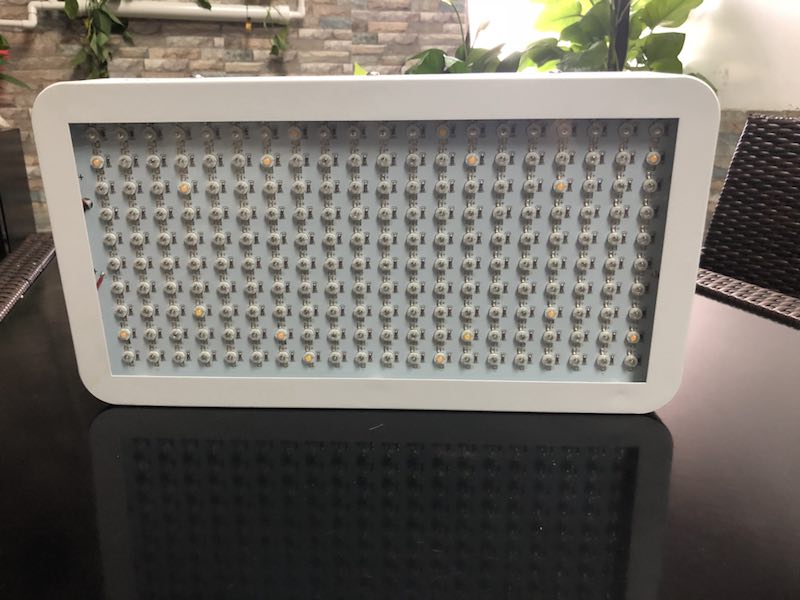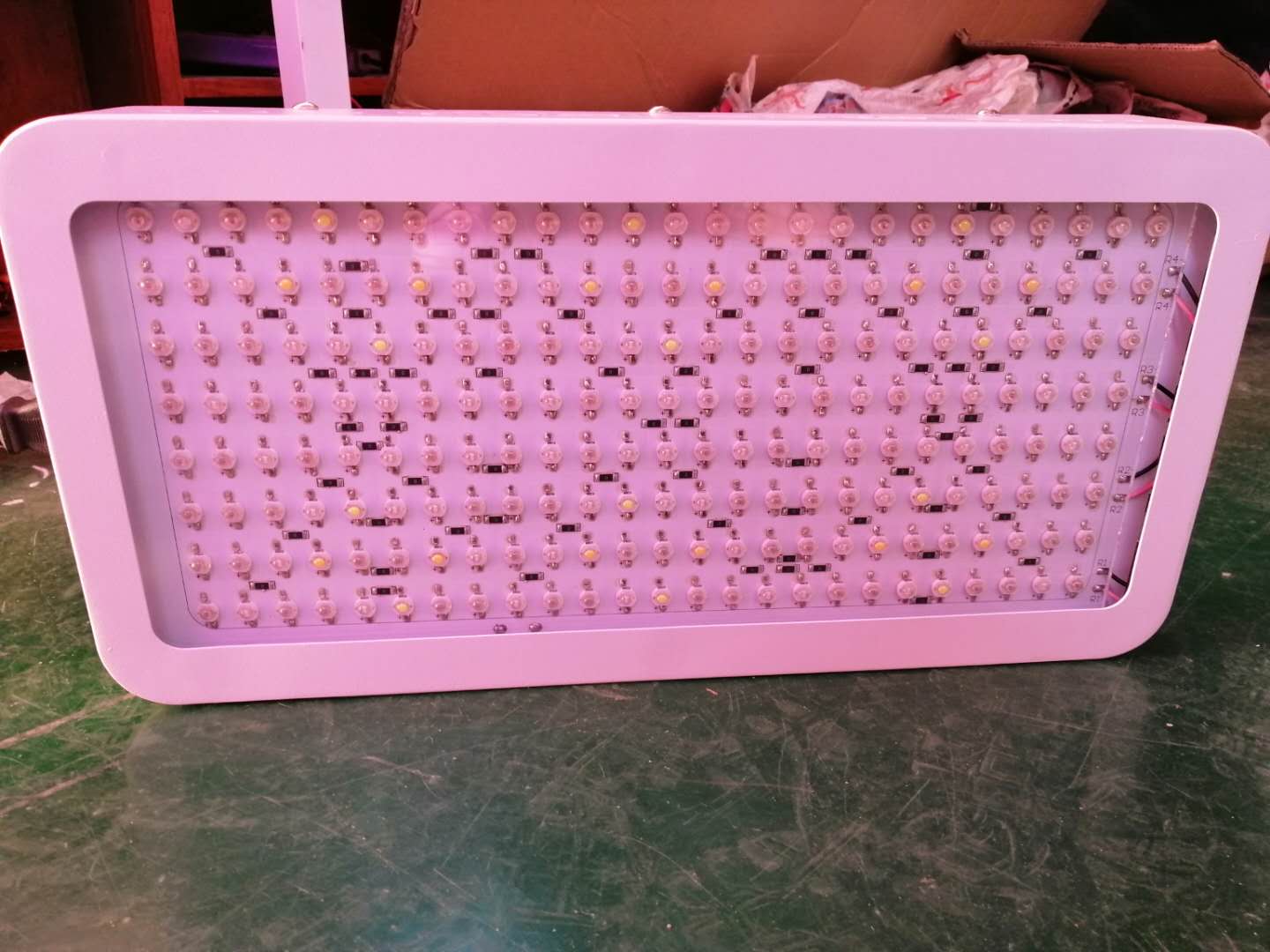China’s economic data is mired and the hopes of rapid recovery are rising
LED Grow Lights 2000W, with 200pcs double chips led, 3pcs fast-speed cooling fans, we have double switch grow light/red+blue lighting/3500k white lighting, High power System Led Grow Light works very well for plant growth.2000W Grow Lights For Indoor Plants.
OEM:
Customzied box MOQ 500pcs.
Customzied logo MOQ 100pcs
2000W product photo:
Led Plant Lights,Cheap Grow Lights,Led Plant Grow Light,Led Grow Lamp Shenzhen Wenyi Lighting Technology Co., Ltd , https://www.wygrows.com.jpg) According to the latest economic data, the growth rate of China's industrial added value has slowed further, eroding the hopes of the outside world and exacerbating people's concerns about the weak global recovery. The outside world had hoped that Beijing’s shift to stimulus measures would prompt the world’s second-largest economy to rebound rapidly. China's industrial added value increased by 9.2% year-on-year in July, down from 9.5% in June, and the lowest growth rate since May 2009. Power generation increased by only 2.1% year-on-year, indicating a more significant slowdown in energy-intensive heavy industries. Industrial added value is the main monthly indicator for measuring the health of China's economy. Zhang Zhiwei, a Chinese economist at Nomura, said that the slowdown in industrial value added growth was unexpected and could lead to more policy relaxation. China's mainland and Hong Kong stock markets were not affected by weak economic data, and closed higher on Thursday, reflecting investors' expectation that Beijing will take more measures to stimulate economic growth. The outside world can use the data released on Thursday to see if China's economic growth in the third quarter will rebound from the second quarter. China’s gross domestic product (GDP) grew by 7.6% year-on-year in the second quarter, down from 8.1% in the first quarter and the lowest growth rate since the global financial crisis. The European crisis has hit China's exports, and policy adjustments in China's domestic real estate industry have helped explain why industrial value-added data is disappointing. In the real estate industry, the residential area under construction in the first seven months of this year decreased by 13.4% year-on-year. At a recent press conference, Tan Huajie, secretary of the board of real estate developer China Vanke Co., said that the sluggish sales meant that some developers would reduce construction in the second half of the year. The slowdown in the real estate industry has begun to hit the demand for steel and other building materials. Yang Jian (sound), sales manager of a steel trading company in Zhengzhou, Henan, said that the market is not good. He said that steel prices are falling and sales are falling. This year is worse than last year. We don't see any hope. Household consumption shows some signs of growth. China’s inflation-adjusted retail sales in July rose 12.2% year-on-year, slightly higher than the 12.1% in June. Car sales are also strong, according to industry group China Association of Automobile Manufacturers data, car sales in July increased by 11%. Chinese leaders hope that household consumption can play a greater role in supporting economic growth. Chinese leaders pledged to shift policy to promote growth, and cut benchmark rates in June and July, reducing the one-year lending rate of some borrowers by 1.7 percentage points. Premier Wen Jiabao of the State Council said at the end of July that the government will put steady growth in a more important position. The People's Bank of China reiterated this message in its second quarter monetary policy report. Despite this, according to China's commercial banks, these policies have turned to growth that has not yet translated into customer demand. A loan department manager at a state-owned bank in Beijing said that infrastructure and environmental project loans did not increase. The inflation rate fell in July, when the consumer price index (CPI) increased to 1.8% in the month, down from 2.2% in June, and the lowest level since January 2010. This creates room for the government to take more measures to support economic growth. However, government economists believe that simply loosening monetary policy is not enough to restore economic growth. Li Shigang, a researcher with a think tank under the National Development and Reform Commission, said that the recent continuous rate cuts will only have a limited impact on boosting demand. As interest rate cuts have not led to an increase in demand for loans, companies are reluctant to increase spending. In this case, the government began to increase its investment. In the first half of this year, the National Development and Reform Commission approved 1,446 large-scale investment projects, an increase of 22% over the same period in 2011. Railway system investment increased by 8% year-on-year in July, the first time since the beginning of 2011. The investment in the railway system is an important part of China's 2009 economic stimulus plan. Some companies report that the government's measures to stimulate economic growth have begun to make their profits better. A manager of China National Building Material Co., Zheng Huirong, said that sales of cement and other building materials in the company increased by 10% in July from the previous month. She said the government's stimulus measures have had a positive impact on real estate and infrastructure investment and are beginning to boost demand. Despite this, Li Shigang predicted that if more companies fail to see the benefits of government stimulus measures, Beijing will increase its stimulus. He said that if the economic growth rate in the third quarter is lower than 7.5%, the CPI is lower than 2%, and the European economy is still a mess, China should consider introducing major policy measures to promote economic growth.
According to the latest economic data, the growth rate of China's industrial added value has slowed further, eroding the hopes of the outside world and exacerbating people's concerns about the weak global recovery. The outside world had hoped that Beijing’s shift to stimulus measures would prompt the world’s second-largest economy to rebound rapidly. China's industrial added value increased by 9.2% year-on-year in July, down from 9.5% in June, and the lowest growth rate since May 2009. Power generation increased by only 2.1% year-on-year, indicating a more significant slowdown in energy-intensive heavy industries. Industrial added value is the main monthly indicator for measuring the health of China's economy. Zhang Zhiwei, a Chinese economist at Nomura, said that the slowdown in industrial value added growth was unexpected and could lead to more policy relaxation. China's mainland and Hong Kong stock markets were not affected by weak economic data, and closed higher on Thursday, reflecting investors' expectation that Beijing will take more measures to stimulate economic growth. The outside world can use the data released on Thursday to see if China's economic growth in the third quarter will rebound from the second quarter. China’s gross domestic product (GDP) grew by 7.6% year-on-year in the second quarter, down from 8.1% in the first quarter and the lowest growth rate since the global financial crisis. The European crisis has hit China's exports, and policy adjustments in China's domestic real estate industry have helped explain why industrial value-added data is disappointing. In the real estate industry, the residential area under construction in the first seven months of this year decreased by 13.4% year-on-year. At a recent press conference, Tan Huajie, secretary of the board of real estate developer China Vanke Co., said that the sluggish sales meant that some developers would reduce construction in the second half of the year. The slowdown in the real estate industry has begun to hit the demand for steel and other building materials. Yang Jian (sound), sales manager of a steel trading company in Zhengzhou, Henan, said that the market is not good. He said that steel prices are falling and sales are falling. This year is worse than last year. We don't see any hope. Household consumption shows some signs of growth. China’s inflation-adjusted retail sales in July rose 12.2% year-on-year, slightly higher than the 12.1% in June. Car sales are also strong, according to industry group China Association of Automobile Manufacturers data, car sales in July increased by 11%. Chinese leaders hope that household consumption can play a greater role in supporting economic growth. Chinese leaders pledged to shift policy to promote growth, and cut benchmark rates in June and July, reducing the one-year lending rate of some borrowers by 1.7 percentage points. Premier Wen Jiabao of the State Council said at the end of July that the government will put steady growth in a more important position. The People's Bank of China reiterated this message in its second quarter monetary policy report. Despite this, according to China's commercial banks, these policies have turned to growth that has not yet translated into customer demand. A loan department manager at a state-owned bank in Beijing said that infrastructure and environmental project loans did not increase. The inflation rate fell in July, when the consumer price index (CPI) increased to 1.8% in the month, down from 2.2% in June, and the lowest level since January 2010. This creates room for the government to take more measures to support economic growth. However, government economists believe that simply loosening monetary policy is not enough to restore economic growth. Li Shigang, a researcher with a think tank under the National Development and Reform Commission, said that the recent continuous rate cuts will only have a limited impact on boosting demand. As interest rate cuts have not led to an increase in demand for loans, companies are reluctant to increase spending. In this case, the government began to increase its investment. In the first half of this year, the National Development and Reform Commission approved 1,446 large-scale investment projects, an increase of 22% over the same period in 2011. Railway system investment increased by 8% year-on-year in July, the first time since the beginning of 2011. The investment in the railway system is an important part of China's 2009 economic stimulus plan. Some companies report that the government's measures to stimulate economic growth have begun to make their profits better. A manager of China National Building Material Co., Zheng Huirong, said that sales of cement and other building materials in the company increased by 10% in July from the previous month. She said the government's stimulus measures have had a positive impact on real estate and infrastructure investment and are beginning to boost demand. Despite this, Li Shigang predicted that if more companies fail to see the benefits of government stimulus measures, Beijing will increase its stimulus. He said that if the economic growth rate in the third quarter is lower than 7.5%, the CPI is lower than 2%, and the European economy is still a mess, China should consider introducing major policy measures to promote economic growth.



